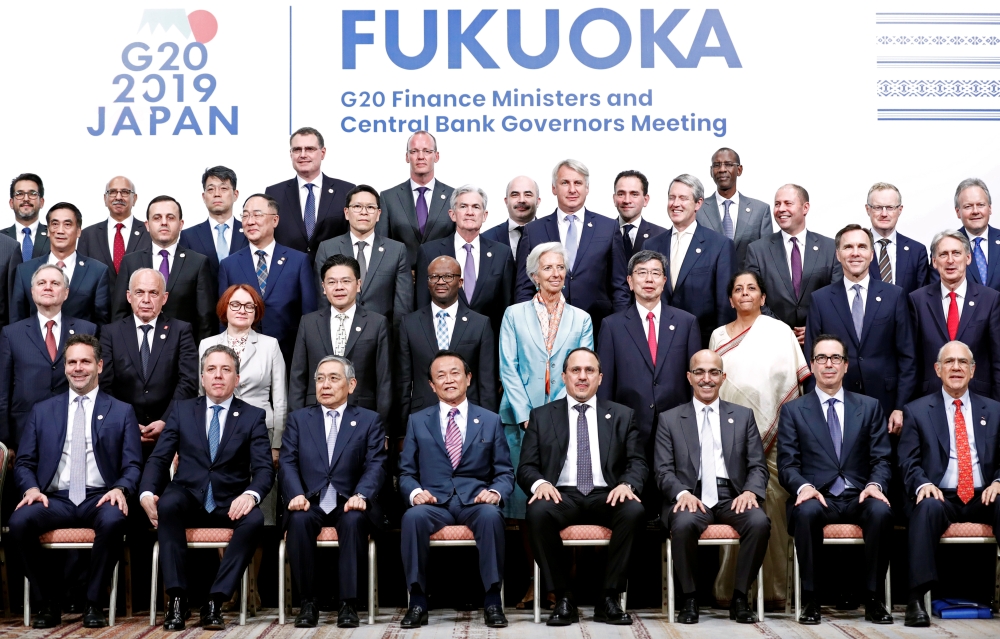Source: worldhealth.net
The world’s top policymakers are tackling economic issues such as labour shortages, financial services for the elderly, and ballooning healthcare costs to aging and decreasing birth rates for the first time.
The meeting took place in Japan where the rapidly aging population is a major domestic problem, and the G-20 finance ministers and central bank chiefs warn to address the issue before it becomes too late.
What we are saying is, ‘If the issue of ageing starts to show its impact before you become wealthy, you really won’t be able to take effective measures against it’,” says Japanese Finance Minister Taro Aso.
G-20 consists of countries at varied stages of development and population profiles, ranging from this year’s chair and rapidly aging Japan to next year’s chair Saudi Arabia which has a fairly young society.
In hopes of it providing warning to other nations that they must be prepared to act before population aging rides in on a silver tsunami to pile pressure on the economy, Japan is sharing it’s experience with an aging population.
Declining birth rates and longer life expectancy has led to a rapid expansion of elderly populations in among the wealthier countries such as Italy, Spain, and South Korea. However this pattern is also affecting emerging powers like China and Brazil which are also facing their own demographic change related to their early development stages.
The Organisation for Economic Co-operation and Development projects that the world will have more than 2 billion residents aged 60+ by the year 2050, which is more than double what the number was in 2017.
During these talks experts are warning that many economies are failing to update their pension and employment systems to adjust for these changing and aging demographics; this failure has resulted in fiscal and debt risks for entire countries, as well as individuals.
The workforce is shrinking.” says Angel Gurria, OECD chief.
“You basically have a very large portion of mankind that is ageing and then the workforce is shrinking. But I would say the G-20 in particular are ageing faster. These are trends that will continue, I am afraid. It’s not something you can suddenly stop.”
Japan now finds itself muddling to find ways to cover the costs of the national pension due to the shrinking workforce, which has left many elder citizens fearful of cuts to benefits and younger people fearful there will be no pension when they retire. The shrinking workforce also means businesses are unable to fill job openings, and the national unemployment rate stands at 2.4%.
More and more citizens are working beyond traditional retirement ages, and the economy must adjust to offer jobs that the older workers are able to perform. Technology is stepping in to help train elderly workers as well as in assisting them access services such as finance management and healthcare.
Aso is suggesting to global leaders in the finance sector must take the lead not the health ministers to get ahead of aging.
“Cover your pension.”
The goal of these talks was to prepare ground for the leaders’ summit at the end of the month, as aging becomes an increasingly pressing issue for most developed countries in the G-20.
“Most of the G-20 nations already experience or will experience ageing. We need to discuss problems that arise with societal ageing and how to deal with them.” says Haruhiko Kuroda, the Bank of Japan governor.
“There is no nation that says ageing issues don’t affect them. So we believe the discussions will be productive.”
Gurria suggests that elderly workers and women should play greater roles in the workplace, and is also encouraging younger generations to prepare better for their financial future to help counter these economic impacts.
“A solution to the issue requires changes to the way society organises itself. Depending on how prepared you are, you are facing an uncertain future, which already has enough uncertainties. What you don’t want is to have certainty that you don’t have enough money in order to cover the pension.” says Gurria.
